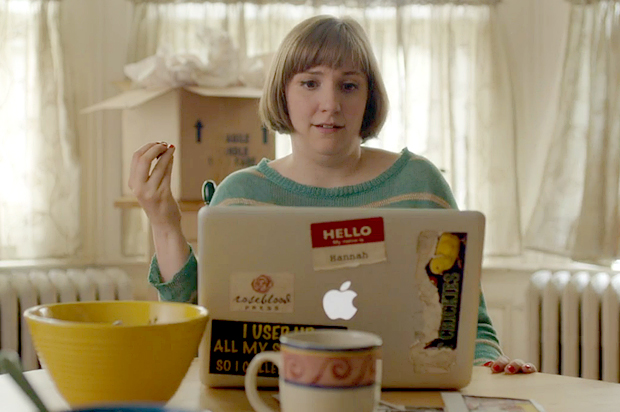The quarter-life crisis.
It’s an increasingly common phenomenon among the mid-20s to 30s cohort. Look online and the phrase is usually associated with the transition to adulthood and the stress brought on by the choices associate with those who are having their first go at “adulting.”
Maybe there is some truth to this understanding, but it seems almost too simplistic for the gut-wrenching crisis that gnaws at this group.
There are tons of us who are successfully adulting and still find ourselves in a place that fits the label of a quarter-life crisis. We have jobs that we never imagined we could get when we fell off the school or university conveyor belt, into the black hole of, “What the hell comes next?”
We’re not afraid of hard work; we’ve worked long hours, saved, and maybe gone to explore the world on those savings. Some have bought their first house and others have made the place that they rent into a home. Some are engaged, others have rich, honest relationships, and others are seizing the adventures permitted by single freedom. Our blessings are many and varied but, despite all the gifts and achievements, we find ourselves in moments of despair and confusion.
But listen, you are not failing at adulting.
I am not failing at adulting but there are still a bunch of us that can’t avoid the moments of feeling totally f*cking lost.
Trying to understand these bleak moments can really shake the foundations beneath the path we traverse. In search of answers, we dig further and further into a wonderland where purpose and reasoning become increasingly abstract. In fact, the phenomenon that’s hitting the quarter-life crisis cohort is just like that long fall down the rabbit-hole. It’s a mid-20s plus spiritual spiral.
And it’s understandable.
We go through childhood traveling through systems carefully designed to provide us with tools that will give us the best chance at success. However, these are external facing tools that are important and practical but not necessarily suited for internal challenges. We look to the left or right and see our peers traveling similar paths, passing similar milestones, and take comfort that we’re moving in the right direction—right up to the point where we step of the conveyor belt and into the world.
And then? Hello, adulthood!
Now we see that the paths of our peers are gradually diverging from our own. Our milestones differ, although certain milestones still appear on several others’ paths: a marriage, a house, a holiday, a job, a baby…
Why is our path leading this way? It seems an awfully long route. Why hasn’t that milestone cropped up yet?! We need to move faster. Eventually, we happen to look straight ahead in our direction of travel and realise, we haven’t got a clue where we are or how we even got here.
If this sounds familiar, it’s okay. Just breathe.
Recently, a friend told me that I was focusing too intensely on one piece of a jigsaw, fighting to force this piece into place because the rest of the pieces were scattered all over the place. Those pieces, she told me, where exactly where they were meant to be. Who wanted a completed jigsaw at the age of 26?
I realised then, that it’s okay to be lost. Our biggest problem is that we’re just not very good at it.
The solution to the quarter-life crisis is that we need to get inspired about being lost and stop hiding from it. We sit on the train, wait at the doctor’s, queue at the shop, and pull out our phone or plug in our headphones. We don’t spend enough time with ourselves in the quiet; we don’t retreat into the internal.
Without a strong relationship with ourselves, our perspective is too easily influenced by the external, and we have no internal resilience mechanisms for when those moments of confusion and darkness descend.
So, how does one go about getting inspired about being lost?
1. Shift perspective. Stop comparing.
Drop any perceptions of what adulthood is supposed to look like and the idea that your life needs to mirror others. When our perspective is dominated by external standards, we are likely to view our life through a lens of scarcity. We become conscious of the jigsaw pieces that aren’t in place, focus too much energy on forcing the next piece into place, and totally neglect the pieces that are already forming a beautiful picture.
So, take the view that adulthood is an adventure. The best adventures come from being lost and exploring uncharted territory; that’s often where the important lessons arise. Embrace and revel in the fact that you still have things to discover, and actively look for the beauty and lessons in the jigsaw pieces that you are lucky enough to have.
2. Sit in the quiet.
You are your strongest resilience mechanism. So, get to know yourself. Spend five or 10 minutes every day in complete quiet. It might feel awkward at first, like any first introduction can be. Sitting in with your thoughts and listening to your breath, will naturally make that transition from external to internal compass easier.
It is also a good first step to being present in your own journey and being mindful of your thoughts. This is so important to prevent that “wonderland sensation” because instead of tumbling into a spiritual spiral, you will be alert to negative thoughts creeping in the back of your mind so that you can stop them from spreading.
3. Gratitude.
How do you stop those thoughts? Cultivating a practice of gratitude helps you actively shift your perspective onto your blessings and that helps you get inspired by your journey. Practising gratitude also helps develop resilience to the overwhelming feelings that pop up when things don’t work out as planned.
Maybe your milestones don’t align with your peers’ but if you pay attention to your own journey, you will have some pretty awesome things to be thankful for. Whether it’s an actual journal or mentally listing a few things in the morning or at night, gratitude is a positive tool to invest in.
4. Anchor points.
We’re all human and we’re all learning, so it is only natural that sometimes the perception shift will be a little too difficult, the gratitude a little forced, and the sitting in the quiet unbearable (you still have to stick with them). Having little anchor points in your day or week will help you stay upright when your foundation is shaking.
Anchor points give you a sense of familiarity that makes your path comforting. Maybe that’s yoga, meditation, or your gratitude journal but it could be anything—a Sunday walk, a bath with candles, a Monday (to Friday) morning coffee—a ritual that is yours, that is important to you, that creates time for you. The trick is that you also must be present and fully experience these anchor points.
The quarter-life crisis is no crisis. It’s the realisation that adulthood is a never-ending adventure and we’re not supposed to have it all figured out.
Remember, we’re all doing just fine on our own, non-matching, chaotic, discovery-around-every-corner path.
We are successfully adulting.
Now…Get lost!
Author: Jessie Hanley
Image: YouTube Screenshot
Editor: Sara Kärpänen
Copy Editor: Nicole Cameron
Social Editor: Nicole Cameron









Read 0 comments and reply